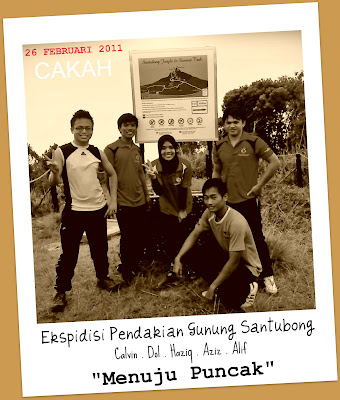You’ve heard about those amazingly fun offices where play is encouraged? They’re not just cubicle legend. Companies like Google and 3M have crafted colorful, dynamic workspaces where employees play with toys and video games, take nap breaks and go outside for recess. If it sounds a little childish, that’s exactly the point.
Over the past couple of decades, industry leaders have tapped into an idea that philosophers (like Nietzsche) and scientists (like Einstein) have long championed:
"it is useful and sometimes necessary for people to think like children to achieve success as adults"
People tend to
get stuck in mental ruts, approaching everything from their jobs to their marriages from the same tired perspective. But taking cues from children can jolt us out of complacency and view the world from a whole-new angle—if only for moments at a time. Officials at Google and 3M found fashioning offices akin to kindergarten classrooms resulted in creative, energetic environments where innovative ideas are born every day.
“When people start to think like a child, they begin to see things from a fresh perspective,” says Jack Uldrich, global futurist, business speaker and bestselling author.
“They learn to step back and view problems, people and things from a completely different point of view.”
What We Lose with Age
As we grow older, certain behaviors naturally abate. While we’re all glad our days of thumb-sucking and bed-wetting are behind us, positive traits such as
limitless imagination and spontaneity also diminish.
Remember how a couple of blankets and pillows could transform the living room sofa into a magical fort?
Or
how a humble bathroom towel could turn an average boy into a superhero?
Our ability to learn new things is another primary positive characteristic we lose over time, says Alison Gopnik, a professor of psychology and affi liate professor of philosophy at the University of California at Berkeley.
"
Children are designed by evolution to be extremely good learners—to be able to learn about anything that’s interesting and important in the world around them,” she says.
“
When you look at their brains, they’re extremely flexible, so they can change what they think based on new evidence very quickly and easily.”
Gopnik explains that, over time, instead of being attracted to and exploring anything new and exciting in our environments, we begin to hone in on only the things that we know are relevant to us—thus, narrowing our field of vision, making ourselves closedminded and decreasing the overall possibilities.
“Those two ways of perceiving—some people in computer science talk about this as the difference between a system that explores and a system that exploits. So a system that exploits says, ‘Just pay attention to the things that are most relevant to your goals.’ A system that explores goes out and looks to fi nd all kinds of information that might be relevant, but you don’t know yet if it’s going to be relevant.
“You really need both of those things to be a successful human being,” says Gopnik, who recently published her latest book,
The Philosophical Baby: What Children’s Minds Tell Us about Love, Truth and the Meaning of Life. “
I say children are really the research and development division of the human species, and adults are production and marketing.”
Learning involves asking questions, and children are never shy about that. “They’re not afraid of their ignorance,” Uldrich says. “In fact, they embrace it. After a while, many adults don’t ask questions or they lose their willingness to inquire because we’re concerned about how we might look.”
Which leads to another benefit of youth: “Children really aren’t conscious of what other people think of them,” Uldrich says. “This is a real strength.” This obliviousness encourages children to be free spirits, to say what they mean and mean what they say. Over time, failures dash our self-confidence, etiquette dictates our behavior, and it becomes more difficult for adults to be completely open and honest about what they think.
Uldrich also points to the tenacity of children—something he experiences when he visits a store with his two kids. “They’ll say, ‘Dad, can I have this? Dad, can I have this?’
They won’t take no for an answer. They do not give up. At some point in our adult lives, we start taking no for an answer and just accept it. Kids don’t do that. If they are forced to take it, they then begin plotting ways around it.”
The open-mindedness of children also helps them learn new things. “I think all of us adults—whether we’re viewing a person, an idea, a product—we come to it with our opinions already shaping who we are,” Uldrich says. “There’s an idea of just dropping your opinions of all of those things and getting back to the idea of trying to see things not as you see them, but maybe as they really are.”
In his consulting work, Uldrich uses optical illusions to illustrate this point. While children can easily point out the two sides of an illusion, adults typically see one or none—but rarely both. Once we have an idea fixed firmly in our brains, it’s difficult to see and accept anything to the contrary.
How to Get It Back
It’s never too late to reclaim those positive characteristics of youth—and use them to augment the wisdom and experience acquired with age. That combination is the key.
“I think it’s important to say that if you really thought all the time like a child that you’d have to have somebody else trailing behind you, cleaning you up and tying your shoes for you,” Gopnik says. “For adults, it’s important to have a balance.”
There are many activities that can help. In his recent book,
Jump the Curve: 50 Essential Strategies to Help Companies Deal with Emerging Technologies, Uldrich devotes a chapter to “The Power of Play.”
“It has been theorized by some that play is an integral form of learning,” he says. “It allows people to practice skills they might need later down the line. But play goes beyond such life skills. When we play, we gain practice manipulating things and controlling the outcome of events. We also devise new solutions for old problems and create new endings for our experiences.”
Furthermore, “
play has consistently been found to reduce stress, increase energy levels, brighten people’s out look, increase optimism and foster creativity,” he says. So try learning a new instrument, joining a recreational athletic league or taking up a hobby—all of which exercise the mind.
Uldrich also likes the idea of mandatory recess. He says companies like 3M and Google actually give employees the freedom to spend 10 to 25 percent of their work time on products that just catch their fancy. “These companies continue to get a lot of their next-generation ideas and products from that very process,” he says.
Other suggestions include varying your reading material—science fi ction, any kind of novels or plays—as well as role-playing in work situations. “
Allow yourself to get outside of your shoes and act as if you are someone else, and feel free to do things from different perspectives, feel free to say outrageous things,” Uldrich says. “
That’s where the innovative ideas are going to come from.”
Gopnik echoes those sentiments. “The kind of pretend and imaginary things we do as adults, such as reading novels and plays—things that don’t look as if they’re a part of your goals—are ways that
we can get back to some of that childlike ‘what if?’ ”
She also says traveling to new destinations and exploring foreign cultures is great for the mind. “A lot of our preconceptions get changed because we’re just open to lots of new experiences,” she says.
Meditation can help achieve a childlike state of mind as well, Gopnik says, even if you do it for as little as 10 minutes a day. “Just stopping for some time during the day when you’re in the midst of all that planning and goal-direction, and just emptying out your mind and seeing what happens.”
Rich Lazzara—a self-described “Gen neXt entrepreneur” and vice president of the successful Lazzara Yachts company— recently published a blog titled, “
To be a successful entrepreneur, think like a child.”
The biggest obstacle to creative ideas is fear of failure, he says, pointing to the self-defeating statements we often repeat in our heads: “‘I’m not creative.’ ‘I can’t think of anything.’ You need to forget that attitude and allow yourself to open up to failure. When you sit down to create an idea, go into it with zero inhibition.”
Another key is to release restrictions, he says. “As you are preparing to come up with your ideas, it is important that you not set restrict ions on yourself.” Factors such as time, money and resources—while important to consider—shouldn’t hinder your brainstorming.
“
Allow yourself to think completely free,” he says.























